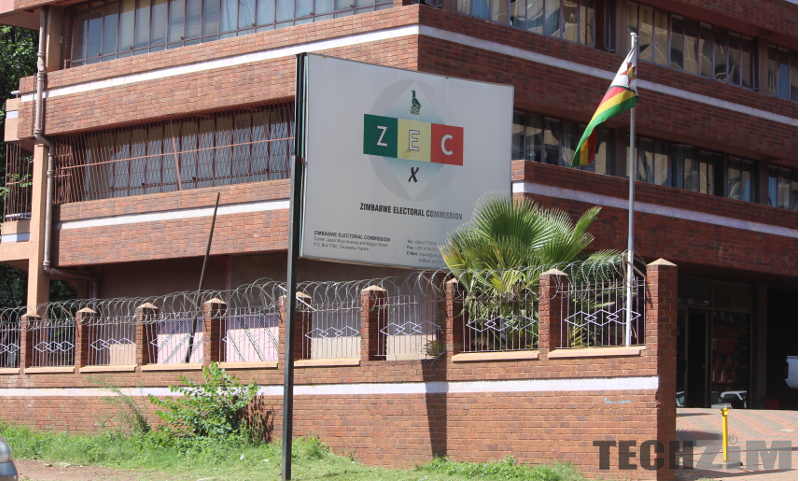By Farai Chirimumimba
As part of ensuring free, fair and credible general elections in July/August, Zimbabwe Electoral Commission (ZEC) commenced the voters roll inspection on 19 May, an exercise expected to end on 29 May. The process is one of the most importance within an electoral cycle that l have been closely following developments in Seke, Chitungwiza and Seke rural with an eye on the rest of the country with keen interests as a journalist, political analyst and a registered voter. This update is for the period 19- 23 May 2018.
General observations
I commend the efforts being made by ZEC to effectively conduct the voters roll inspection despite various challenges such as inadequate resources for instance tents and furniture. At Vera business centre (Chirasavana) in Seke rural, officers had to think outside the box and come up with an inspection centre and furniture after ZEC failed to avail the resources because of the challenges associated with projects of such magnitudes. I am also indebted to Zimbabweans who have contacted themselves in a peaceful manner since the project begun on Monday. I am yet to witness or hear of instances of violence in any form.
USSD and online platform
ZEC should also be commended for creating these platforms which l have no doubt if perfected will be reduce costs associated with creating many voters roll inspection centres throughout the country. However, I have noted a number of anomalies with the system. For instance at Seke 13, Seke, Chitungwiza inspection centre l met a person who used the *265# and found details correct. On a hunch he went for manual inspection and was shocked as details differed. They is also need to go and physically see that the details match the voters roll USD message especially that the USSD message does not show one’s gender and picture. I also heard of instances where a person would be registered in the opposite sex at some of the centres.
Voters roll inspection personnel
I noted that the ZEC personnel were in all inspection centres that l visited and are generally conducting the exercise well and are friendly that remain me of the friendliness of the solders after the coup last November. People are being helped through the process quickly with average time being 2 minutes for inspection and 3 to 5 minutes for BVR.
Voters roll inspection centres
I noted with great concern that although the low turnout being experienced at some inspection centres may be due to that people are using other platforms to confirm their details, l however, feel that the situation is also being fuelled by the fact that some of the inspection centres are not following the people. It does not need a political scientist to understand that inspection centres should be erected in places of high human mobility and not necessarily be tacked away in schools. I understand that there should be a balance with security but, however, l noted with concern the absence of traditionally centres that are normally erected at UNIT L shops, the famous C-junction and Jambaja market all in Seke, Chitungwiza. Any person who knows these places will know that these are high human mobility areas. People are too busy that it is important to erect centres on their “path” as they go to the shops or vegetable markets or board kombi.
Security at inspection centres
I have noted with concern that ZEC did not provide security at centres that does not have the BVR kits. Is ZEC saying the voter’s roll(s) at these centres without BVR kits are not documents of high national security? Is the voters roll not as important as the BVR kit? I however, noted observed that where ZEC did not provide especially at urban schools were most of the centres are located; ZEC took indirect advantage of school security guards manning the gates. However, there are centres in rural areas that do not have security guards and those dotted at growth points that yarn for security as being provided at centres with BVR kits.
Proof of residence
Despite several documents that can be used as proof of residence l noted that at most inspection centres l visited, officers were strictly requesting for electricity, water and telephone bills in one’s name for a person to be able to register as a voter. This practice disenfranchises those who are not house owners.
Civic and voter education
This process should be ongoing but having moved around several inspection centres l only come across one group of four voter educators throughout Chitungwiza North and South and parts of Seke rural. With 5.4 million registered voters, ZEC has to up its educational strategies to target more and more people.
Recommendations
Based on observations, l offers the following recommendations:
- ZEC should be strong and all out encouraging voters to cross check mobile USSD (*265# etc…) and online (website) platform with the physical voters roll. Text messages are not enough to pre-empty one’s biometrics that should be confirmed physically that they tally with one’s; likeness, a fact that cannot be conveyed through a text message.
- There is need to provide security at all centres regardless that they do not have BVR kits. There is no doubt in my mind that manual voter’s rolls are as important as BVR kits.
- Voter’s roll inspection officers should be educated on the roles of observes and must be advised to expect observers.
- There is need for ZEC to clarify to provincial and district offices on the role of the police in the inspection process.
